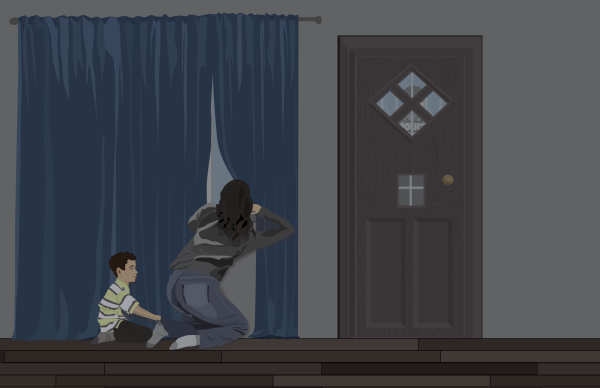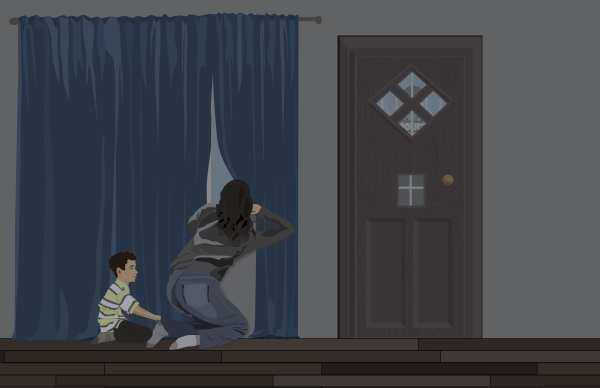Arguably the Best
Being both debate partners and cousins, Julian Kuffour and Emmanuel Osei are unstoppable when it comes to debate.
“Our dynamic is so different than other teams,” Osei said. “We are just sitting there ‘meming.’ We have gotten a lot of comments that we’re not intimidating.”
The pair knows each other well enough that finding arguments for debates is a breeze. This year, the debate topic revolves around education. Osei’s main passion within debate this year is further desegregating schools, while Kuffour works on building his argument against the other team.
“There are a lot of arguments that Emmanuel will know that I want to make,” Kuffour said. “It saves us a lot of prep time because we already know what we have to help the other with.”
Being cousins is not the only thing that separates them from the rest of the competition. While most are strictly serious during tournaments, Kuffour and Osei often joke around during competition and say that is part of their strategy.
“I’m just very expressive,” Osei said. “Normally, people aren’t making any expressions. I’ll look to Julian and say something very ‘memey’. Julian will just like turn to me and be like ‘Should I say this?’”
Debate teacher Ken King sees the relationship Osei and Kuffour have not only as debaters but as cousins and states that is what makes them strong as a team.
“They work very well together, they can be very critical of each other but not destructive of each other, because they are related,” King said. “If most of my teams interacted with each other the way they do, it would be very destructive.”
After winning the Catholic Forensics League competition on Dec. 3, they are headed to the National tournament in Washington, D.C., that will take place on May 26 and 27. They will continue centering their debates around the issue of education. Past topics have ranged from oceanography to surveillance.
“I think that their case is philosophically correct,” King said. “I think that students thrive more in a diverse community. I think right now we have a lot of natural segregation. That is one of the things I really like about northwest, because we have a really diverse community.”
“In certain debates, you can super fast and make a ton of arguments which are a combination of speed and reading. There are some people who speak 360 words in a minute. On my good days, I’m around 330. That technique is very useful.”
Debate tournaments are split up into five or six preliminary timed rounds where one side is arguing for the affirmative and the other the negative. Each side makes their statements and allows the other to make rebuttals after they have finished arguing their case. After that top teams advance to the elimination rounds, which function on a typical tournament bracket set up.
At first, debate was just another a class both Kuffour and Osei were a part of. After his freshman year, Kuffour joined varsity and Osei shortly after.
“He was kind of a jerk sophomore year, in the context of debate,” Osei said. “Our coach was like ‘I’m thinking about putting you on varsity next year’ and I was just like ‘You know what, I just want to become better than Julian.’ For the next three years I have been working hard to get better.”
Both plan on continuing debate at the collegiate level, but are still undecided on where they will go.
“Even though it is stressful at the upper level, it makes you a much more efficient public speaker, you learn structure,” Kuffour said. “I love the couches in the debate room. And sometimes you’ll get a good partner, like my cousin Emmanuel, and they make you like debate even more.”







